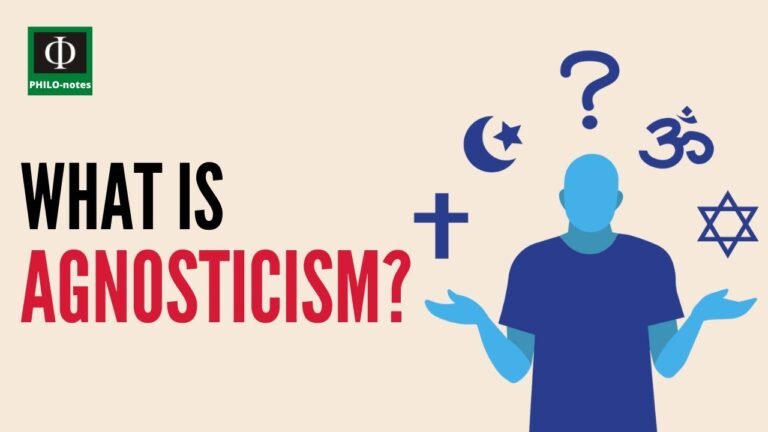Understanding the Definition of Religious Agnosticism
In a world rich with diverse beliefs and philosophies, the term religious agnostic emerges as a thought-provoking concept that straddles the line between faith and skepticism. Defined as an individual who neither affirms nor denies the existence of a deity or deities, a religious agnostic embraces uncertainty and seeks understanding rather than dogma. This perspective invites deeper exploration into the nature of belief and the human experience, challenging us to contemplate the complexities of spirituality in an increasingly pluralistic society.
What is the meaning of being agnostic in the context of religion?
To be agnostic in religion means embracing the perspective that the existence or nonexistence of a higher power, such as God, is ultimately uncertain and perhaps beyond human understanding. Agnostics refrain from definitive beliefs, choosing instead to remain open to various possibilities without fully committing to any single doctrine. This viewpoint can foster a sense of curiosity and exploration, as individuals seek knowledge while acknowledging the limits of human comprehension.
Beyond religious contexts, agnosticism can extend into other areas of belief, reflecting a broader unwillingness to take a definitive stance on contentious issues. Political agnostics, for example, may choose not to endorse a particular ideology or party, recognizing the complexity of political landscapes. This flexible approach encourages critical thinking and a willingness to consider multiple perspectives, allowing for a more nuanced understanding of the world.
What is the difference between an agnostic and an atheist?
Agnosticism and atheism represent two distinct perspectives on the existence of a higher power. An agnostic maintains a position of uncertainty, asserting that the existence of God or gods is unknown and possibly unknowable, while an atheist firmly disbelieves in any deities. This fundamental difference highlights the agnostic’s openness to inquiry and exploration, in contrast to the atheist’s rejection of theistic claims. Together, these viewpoints enrich the broader conversation about belief, knowledge, and the nature of existence.
Is it possible to be agnostic and still have faith in God?
Agnostic theism represents a unique intersection of belief and uncertainty, allowing individuals to embrace the idea of a higher power while acknowledging the limits of human understanding. Those who identify as agnostic theists hold a belief in one or more gods, but they remain open to the possibility that the nature or existence of these deities is ultimately beyond human comprehension.
This philosophical stance provides a flexible framework for exploring spirituality without the constraints of dogma. It invites individuals to engage in a personal journey of faith, balancing their belief in a divine presence with a recognition of the mysteries that life presents. In this way, agnostic theism fosters an environment where inquiry and devotion can coexist harmoniously.
Exploring the Boundaries of Belief
In a world where science and spirituality often find themselves at odds, the exploration of belief offers a unique lens through which to understand our existence. As we navigate the complexities of faith and reason, we uncover the potential for harmony between the two realms. This journey invites us to question our assumptions, embrace uncertainty, and recognize that belief can be both a guiding light and a catalyst for personal growth. By examining the boundaries of our convictions, we not only expand our understanding of the universe but also foster a deeper connection to ourselves and one another, revealing that belief is not merely an endpoint but a continuous, transformative process.
Navigating Faith and Uncertainty
In a world filled with unpredictability, the journey of faith often intertwines with moments of doubt and uncertainty. Embracing this duality can be a transformative experience, allowing individuals to seek deeper understanding and connection. Rather than viewing uncertainty as a barrier, it can be seen as an invitation to explore the complexities of belief and to question the very foundations of one’s spirituality.
As we navigate through life’s challenges, faith serves as a guiding light, offering comfort and reassurance amid turmoil. It encourages resilience, reminding us that even in the darkest moments, there is potential for growth and renewal. By leaning into our faith, we can cultivate a sense of peace that transcends the chaos, allowing us to face the unknown with courage and hope.
Ultimately, the interplay between faith and uncertainty fosters a richer, more profound understanding of life. It challenges us to embrace ambiguity and find solace in the journey itself, rather than fixating solely on the destination. In this delicate balance, we discover that faith is not merely a destination but a continuous exploration—one that can lead to greater wisdom and a deeper connection to ourselves and the world around us.
The Intersection of Faith and Skepticism
In a world increasingly characterized by rapid scientific advancements and shifting cultural landscapes, the dialogue between faith and skepticism has never been more vital. At the heart of this intersection lies a rich tapestry of beliefs and inquiries, where individuals grapple with age-old questions about existence, purpose, and morality. While faith often provides comfort and a sense of community, skepticism encourages critical thinking and challenges the status quo, leading to a more nuanced understanding of both the divine and the human experience.
As people navigate their spiritual journeys, they frequently confront the tensions that arise from holding both faith and skepticism. This interplay can foster profound personal growth, as individuals learn to embrace uncertainty and seek their own truth. Engaging with differing perspectives can illuminate the complexities of belief systems, allowing for a more inclusive dialogue that respects diverse viewpoints while promoting a deeper exploration of what it means to be human.
Ultimately, the intersection of faith and skepticism serves as a powerful reminder of our shared quest for understanding. In this space, we find opportunities for connection and reflection, encouraging us to ask difficult questions and explore the unknown. By fostering a culture that values both faith and inquiry, we can cultivate a richer, more empathetic society where the pursuit of knowledge and spiritual fulfillment coexist harmoniously.
Defining the Middle Ground of Belief
Belief often occupies a spectrum between certainty and doubt, where the middle ground serves as a fertile space for exploration and understanding. In this realm, individuals can embrace ambiguity while seeking meaning, allowing for diverse perspectives to coexist. By cultivating an openness to different viewpoints and experiences, we can foster deeper connections and enrich our own beliefs. This balanced approach not only encourages personal growth but also nurtures a more compassionate dialogue among communities, ultimately paving the way for shared understanding and collaboration in an increasingly complex world.
A Journey Through Uncertainty in Faith
In the midst of life’s unpredictable twists and turns, faith often serves as a guiding light, illuminating the path through uncertainty. Each challenge presents an opportunity to deepen our understanding and strengthen our beliefs. It is in these moments of doubt that we find resilience, learning to embrace the unknown rather than shying away from it. The journey through uncertainty is not merely a test of our faith, but a transformative experience that enriches our spiritual lives and shapes our character.
As we navigate this complex landscape, we discover that faith is not a destination but a continuous journey of growth and exploration. The questions we encounter and the struggles we face invite us to reflect, adapt, and evolve. With each step taken in trust, we cultivate a deeper connection to ourselves and to the world around us. Ultimately, it is this commitment to journeying through uncertainty that fosters a profound sense of purpose and belonging, reminding us that even in the shadows, faith can illuminate the way forward.
Understanding the definition of religious agnosticism opens the door to a nuanced perspective on faith and spirituality. It invites individuals to explore their beliefs without the constraints of dogma, fostering a culture of inquiry and respect. This approach not only enriches personal understanding but also encourages dialogue across diverse worldviews, ultimately contributing to a more inclusive society where questions are valued as much as answers.







